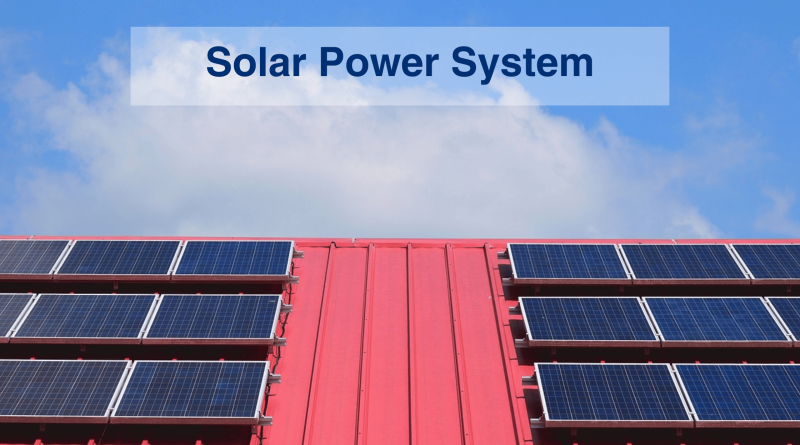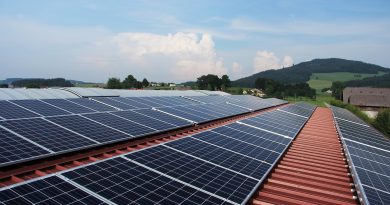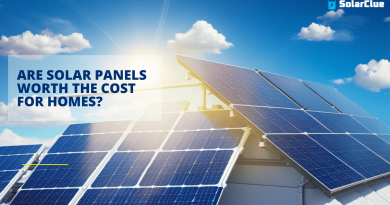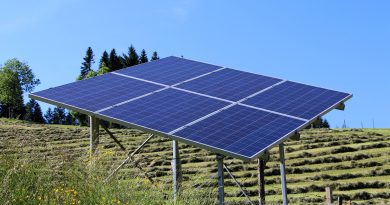A Sustainable Investment for your Home: Solar Power System
Solar power systems have been gaining immense popularity as a clean and renewable energy source. Harnessing the abundant power of the sun, these systems provide a sustainable solution to address our growing energy needs while reducing our carbon footprint. In this comprehensive guide, we will delve into the various aspects of solar power system, their components, advantages, and role in the transition towards a greener future.
Understanding Solar Power System
Definition: A solar power system is an environmentally friendly renewable energy system that converts sunlight into usable electricity.
How it works: Solar panels, composed of photovoltaic cells, capture sunlight and convert it into direct current (DC) electricity.
Net metering: The excess electricity generated can be sent back to the grid, allowing consumers to earn credits or receive compensation for the surplus energy produced.
Components
A solar power system is comprised of several key components that work together to generate electricity:
1. Solar Panels: Made up of photovoltaic cells, solar panels are responsible for capturing sunlight and converting it into electricity.
2. Inverter: Converts DC electricity produced by solar panels into alternating current (AC) electricity, which is suitable for powering homes and appliances.
3. Batteries: Energy storage devices that store surplus electricity generated during peak sunlight hours for use during times of low sunlight or high demand.
4. Charge Controllers: Regulate the flow of electricity from solar panels to batteries, preventing overcharging or damage to the system.
5. Mounting Structures: These provide support for solar panels and optimize their orientation to maximize sunlight absorption.
Advantages
1. Clean and Renewable: Solar power systems generate electricity without emitting greenhouse gases, reducing our reliance on fossil fuels and combating climate change.
2. Cost Savings: By utilizing solar power, homeowners can significantly reduce their electricity bills and achieve long-term cost savings.
3. Energy Independence: Solar power systems enable homeowners to generate their own electricity, reducing dependence on the grid and ensuring a reliable power supply.
4. Minimal Maintenance: Once installed, solar power systems require minimal maintenance, leading to long-term cost savings and convenience.
5. Long Lifespan: Solar panels have a long lifespan, typically ranging from 25 to 30 years, making them a durable and reliable energy solution.
Types of Solar Power System
1. Grid-Tied Systems: These systems are connected to the electrical grid and can sell excess electricity to the grid, offsetting energy consumption during times of low sunlight or high demand.
2. Off-Grid Systems: Stand-alone systems that are not connected to the electrical grid and rely solely on the stored energy in batteries to power homes or buildings.
Environmental Impact
Switching to solar power systems has a significant positive impact on the environment.
1. Reduced Carbon Footprint: Solar power systems produce clean energy, eliminating greenhouse gas emissions associated with conventional energy sources.
2. Conserving Natural Resources: Solar power systems utilize sunlight, an abundant and renewable resource, reducing the need for non-renewable fossil fuels.
3. Preserving Biodiversity: By reducing reliance on fossil fuels, solar power systems help protect ecosystems and the biodiversity they support.
Conclusion
Solar power systems offer an incredible opportunity to transition to a sustainable and clean energy future. By harnessing the power of the sun, these systems provide reliable and cost-effective electricity while reducing our carbon footprint and preserving the environment for future generations. Embracing solar power systems is not only a smart economic choice but also a responsible and ethical decision for a greener and more sustainable world.
Solar power systems harness clean energy from the sun, reducing reliance on traditional power sources, making it a sustainable and eco-friendly investment.
Solar systems can lead to significant savings on electricity bills, potential government incentives, and increased home value, providing a compelling financial return.
Yes, there are various types, including grid-tied, off-grid, and hybrid systems. Choosing depends on factors like energy needs, location, and budget.
The payback period varies but is typically between 5 to 10 years, considering energy savings and potential incentives.
Solar systems have low maintenance needs. Regular cleaning and occasional checks suffice, and solar panels typically have a lifespan of 25-30 years.
Some systems, like hybrid or battery-equipped setups, can provide backup power during outages, ensuring continuous electricity supply.
Solar systems generate clean, renewable energy, reducing carbon emissions and mitigating environmental impact compared to traditional energy sources.
Many regions offer incentives like tax credits, rebates, or feed-in tariffs, encouraging homeowners to adopt solar energy.
Yes, studies suggest that homes with solar installations tend to have higher resale values, making it an attractive feature for potential buyers.
Monitoring tools are often included with solar systems, allowing homeowners to track energy production and system efficiency regularly.




